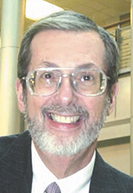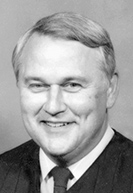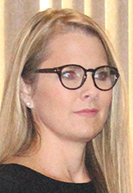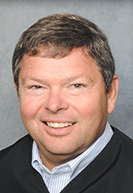Subscriber Benefit
As a subscriber you can listen to articles at work, in the car, or while you work out. Subscribe NowTwo Hoosier elder statesmen who served their country in Washington, produced enduring legacies and provided examples for those who followed, died within weeks of each other this year.
Former Indiana senators Birch Bayh and Richard Lugar represented Indiana in the U.S. Senate as few have before or since. Bayh died March 14 at age 91. Lugar, 87, passed away April 28.
Sometimes rivals, the Democrat Bayh and Republican Lugar were remembered as servant leaders who could build consensus and shape how the government served the people. Despite their differences, the two men had much in common. Both had roots on family farms and both became gifted lawmakers who ultimately rose to seek their party’s presidential nomination.
Bayh was distinguished as the only modern senator to sponsor and pass two constitutional amendments, one establishing the order of presidential succession and another banning gender discrimination in higher education. Lugar was known as a paragon of bipartisan cooperation and as a crusader who sought to halt the international spread of nuclear arms and weapons of mass destruction after the collapse of the Soviet Union.
Both senators’ legacies were applauded beyond partisan lines. Lugar, who as Indianapolis mayor in the early 1970s reshaped the city through Unigov, was remembered fondly by a Democratic successor.
“In his love and through his courage, Richard Lugar helped bring more peace to an increasingly dangerous world,” Mayor Joe Hogsett said. “He did so in every nuclear, chemical and biological weapon disarmed.”
“Birch Bayh was a trailblazer who dedicated himself to improving the lives of all Hoosiers,” said Republican Indiana Gov. Eric Holcomb. “His remarkable legislative and personal legacy transformed the country and will live on for years to come.”

Law school losses
Indiana University Robert H. McKinney School of Law lost a beloved former dean — and the state of Indiana lost a powerful advocate for access to the courts and public defense — when Norman Lefstein died in August. He was 82.
Lefstein led IU McKinney from 1988-2002, the longest-serving dean in the school’s history. He was credited with increasing the financial support for faculty research and promoting the expansion of the clinics, internships and pro bono opportunities for students. He also led fundraising and planning for the law school’s $37 million building, Lawrence W. Inlow Hall, which was dedicated in 2001.
Lefstein chaired the American Bar Association’s Section of Criminal Justice and, for 17 years, the Indiana Public Defender Commission.
“Norm Lefstein was truly a giant among men in the legal community,” Mark Rutherford, chair of the Indiana Public Defender Commission, said. “Countless Hoosiers have benefitted from his visionary leadership in the creation of quality standards for public defense in Indiana. Our state and the nation owe him a great debt for devoting his considerable legal mind and generous spirit to the cause of public service.”
In March, the Notre Dame Law School community mourned the passing of professor emeritus Thomas Shaffer, 84. Shaffer had served as dean from 1971 to 1975 and was one of the country’s most prolific legal authors, noted for his scholarship exploring the intersection of law and religion, law and community, law and humanities and law and literature. Two of his works — “On Being a Christian and a Lawyer” and “Faith and the Professions” — focused on integrating faith into the teaching and practice of law.
“Tom wrote about the importance of integrating faith into the teaching and practice of law,” then-Notre Dame Law School dean Nell Jessup Newton wrote in memoriam. “As a teacher, he taught legal ethics, estate planning, and law and religion, but at the heart of his teaching was to call his students to reflect on what it means to be a lawyer who is also a person of faith.”
In 2013, the law school recognized Shaffer’s dedication to the law students and the public good by renaming the Notre Dame Law Fellowship as the Thomas L. Shaffer Public Interest Fellowship.
The Notre Dame Law school lost another luminary in May, when professor John Copeland Nagle died at 58.
Nagle served as the law school’s inaugural associate dean for faculty research between 2004 and 2007, becoming the John N. Matthews Professor of Law in 2005. “John has been a major figure in the law school as a brilliant scholar, much-loved teacher and mentor, and indispensable colleague,” Newton said.
Nagle was a prolific and nationally regarded scholar, with a passion for environmental law.
Longtime Valparaiso Law School professor David Welter died in December at 59.
A 1990 Valparaiso Law School graduate, Welter returned to his alma mater as a faculty member in 1994, directing the school’s criminal law clinic. Along with his duties in the clinic, he also taught trial advocacy and pretrial skills.
His students argued before the 7th Circuit Court of Appeals and the Indiana Supreme Court, according to Valparaiso University, which said in a statement has passing was met “with great sadness.”

Judicial losses
Retired St. Joseph Superior Judge Robert Miller Sr., a World War II veteran who also was renowned for serving his fellow vets, died in April at age 98.
In 2009 he founded Miller’s Vets and The Last Salute — two programs designed to stabilize struggling veterans and honor the war dead. He also bought and oversaw the renovations on a building for homeless veterans in South Bend that today carries his name as The Robert L. Miller Sr. Veteran’s Center.
“He was a giant who excelledat everything he did and touched, including service to his country and community,” Indiana Supreme Court Justice Geoffrey Slaughter said. “His legacy is an inspiration to his family and all who knew him.”
Longtime Marion Superior Judge Thomas “Tom” Carroll died in October after serving as a judge for nearly 31 years. He was 78.

Carroll, former Marion Superior Civil Court 6 judge, began his judicial career in 1988 and retired from the bench at the end of 2018. Carroll received his law degree from the Indiana University Maurer School of Law and was admitted to practice in 1968. He also had served as a master commissioner for the Marion Superior Court.
“Tom was a committed civil servant who loved his job. With his quick wit and keen mind, Tom kept his colleagues and those who appeared in front of him on their toes. The judiciary is a better place because of Tom Carroll,” the court administration said in a statement.
Wabash Superior Judge Amy Catherine Conner Cornell, who had been appointed less than two years earlier to fill a vacancy created by the elevation of Indiana Justice Christopher Goff, died in February. She was 42.
“Amy was a smart, fair and dedicated judge, and a rising star in her community,” Holcomb said. “Our state and judiciary will feel her loss for years to come.”
Cornell had served as a clerk to former Chief Justice Brent Dickson, as an administrative law judge and as chaplain at White’s Residential and Family Services prior to her service on the bench.

Cass Superior Judge Richard Maughmer died in September in an accident at his home. He was first elected to the bench in 2001 and had been the first and only judge to preside over Cass Superior Court 2.
Maughmer grew up in Cass County and returned to practice law after receiving his law degree from the University of Nebraska. He was appointed Cass County prosecutor in 1986 and held the position until he rose to the bench.
His colleague and friend, Judge James Muehlhausen of Cass Superior Court 1, said Maughmer believed judges had to maintain high ethical standards in order for people coming to court to respect the law and the judgment. “I think that’s something I learned from Rick,” Muehlhausen said.•
Please enable JavaScript to view this content.

